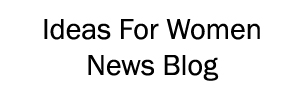|
|
This week in health and science – 8/11/07
|
I’m a little late this week. Here’s what I think are the most interesting blog posts and news of the week:
Genes and DNA
Hsien-Hsien Lei wrote about a disease associated with aging: exfoliative glaucoma and how it has been discovered that one gene – lysyl oxidase-like 1 (LOXL1) is responsible for it. Exfoliative glaucoma can result in glaucoma and possibly cataracts, lens dislocation, and central retinal vein occlusion resulting in blindness. About 10-20% of people after age 60 are affected to some degree by exfoliation syndrome.
Penny at Genetics and Health reports that there may be evidence of a genetic link between inflammatory bowel disease and ankylosing spondylitis.
Razib at ScienceBlogs has a post about lactase persistence and how it spread through human populations, which I found interesting as I am very lactose intolerant.
Women’s Health
Gloria of Cancer Commentary blogged about how although exposure to sunlight raises the risk of skin cancer the higher vitamin D levels acquired has benefits also. Most recently some data suggesting a connection to breast cancer: “the lower the levels of vitamin D in a woman’s blood-stream, the greater the risk of her developing breast cancer at post-menopausal stage.”
Aging
Elizabeth at GenBetween writes about how older workers who are not retiring are “driving corporations to offer flexible work arrangements“. Baby Boomers seem to be a driving force of change in many aspects life like work, healthcare, etc. I can’t wait to see what they do next!
Kendra at A Hearty Life blogged about how many elderly patients refuse treatments recommended by their doctors. Treatments refused include cardiac catheterization and surgery, chemotherapy, radiation, intubation, dialysis, and transplantation. I think that if more medical procedures were more effective and less physically painful/uncomfortable that less people would refuse them.
Nutrition
David Bradley from Sciencebase discusses how taking multivitamins, mineral supplements, and antioxidants can be dangerous. In particular he writes about how “copper ions sometimes act as antioxidants and sometimes as pro-oxidants”. Personally, for now I prefer to eat right and not take any supplements – someday more will be known about what and how much to take is safe or helpful.
Ruth at Eating Fabulous reviewed Fiber One Chew Bars (Oats and Chocolate) recently. She says they were “texture just right: chewy, but not rough, not dry, doesn’t crumble, and doesn’t take ages til you can swallow without injuring your throat.”. Generally I try to avoid anything with added sugar anymore, but if in a hurry they sound like a good choice to keep in mind.
Other
Dr. Val has a good post about the dangers of drinking raw milk – cows are not clean animals and can carry bacteria that are harmful to people. There are reasons why we started pasteurizing milk: “This process has virtually eliminated milk borne illness in this country, including the transmission of Tuberculosis, Salmonella, E. coli, and Listeria.”
Dr. Val also writes about how to report side effects of medications directly to the FDA – I had no idea this was possible to do!
The Biotech Weblog reports that E. coli has been linked to Crohn’s Disease and that a possible new target for treating high cholesterol may developed: “proprotein convertases may play a role in regulating the concentrations of high-density lipoprotein cholesterol (HDL-C)”.
Elisa at HealthyConcerns.com writes about her experience with a corneal ulcer – something to be aware of if you wear contacts.
________________________________________
If you like this post please share or vote for it below:
Stumble:  Kirtsy:
Kirtsy: ![]() delicious:
delicious:  reddit:
reddit:  Digg:
Digg: 
________________________________________
If you like my blog please subscribe to read updates in a
feed reader (what does this mean?)
or by email!
Thanks! I really appreciate all your support!
________________________________________
Related Posts:
- New cardiovascular disease prevention guidelines for women
- This week in health and science – 8/26/07
- This week in health and science – 7/27/07
4 Responses to 'This week in health and science – 8/11/07'
Subscribe to comments with RSS or TrackBack to 'This week in health and science – 8/11/07'.
Leave a Reply
Comments protected by Lucia's Linky Love.




on August 12th, 2007 at 5:41 am
Thanks for this terrific news round up! Keep up the great work.
on August 13th, 2007 at 9:01 pm
I have a 50% blockage in my right cornary artery and they say their is nothing they can do. It was 30% blocked but after the angioplast he hit some plazue and it dislodged and made it20% more blocked. They said it had to get worse in order to get better. How stupid. I had a double by-pass which didn’t work. What’s next. DRUGS or wait till I have a 70 or 80% Blockage. Aghes
Do like your site. Lots of info. Thanks
on August 14th, 2007 at 6:07 pm
Thanks for stopping by Dr. Val!
on August 24th, 2007 at 3:04 am
Hi, thanks for the shout-out. You’re right, eating right and avoiding supplements is the best approach for *most* people. There are, of course, times when diet alone is not enough to prevent deficiencies (in pernicious anemia (vitamin B12), before conception (folate), and below decks when you’ve been pressganged onto a tea clipper or gun ship (archaic) (vit C) and supplements are needed. The paper I cited basically points out yet another reason why healthy people with a good diet should not be taking supplements. If there is a medical indication, that’s different and the risks then have to be weighed up against the benefits gained.
db